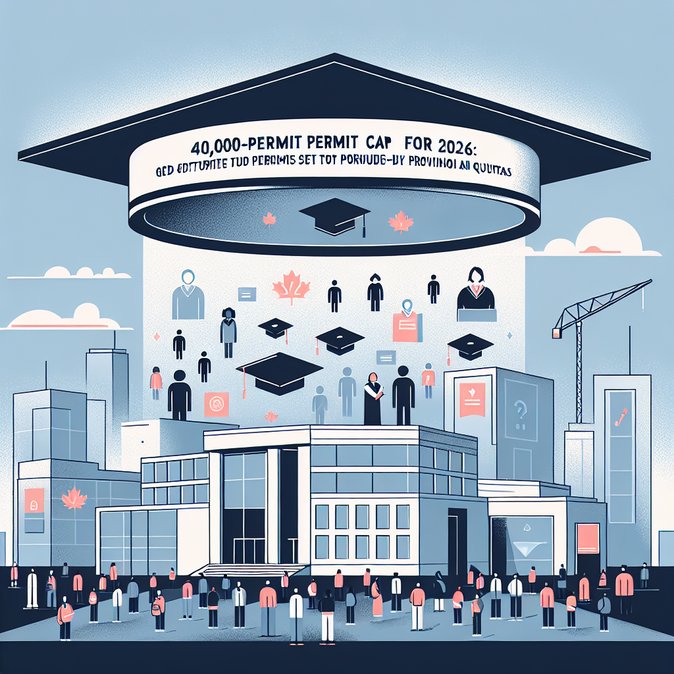
Immigration, Refugees and Citizenship Canada published its long-awaited breakdown of the 2026 national study-permit cap on 25 November 2025. The notice confirms that Ottawa intends to issue no more than 408,000 study permits next year—7 % below the 2025 ceiling and 16 % below the 2024 target—as it seeks to trim Canada’s temporary-resident population to below 5 % of the total by 2027.
For the first time, IRCC set cohort-specific sub-targets: 49,000 permits for master’s and PhD students at public institutions (who will be exempt from provincial attestation letters), 115,000 for K-12 learners, 64,000 for other exempt groups and 180,000 for applicants who must present a provincial/territorial attestation letter. Ontario receives the largest share of PAL-required seats (70,074), followed by Quebec (39,474) and British Columbia (24,786). Provinces also receive larger “application-allocation” quotas—totalling 309,670 nationwide—to account for expected refusals.
![IRCC Releases 2026 Study-Permit Cap and Provincial Allocations]()
The notice offers welcome clarity to post-secondary institutions scrambling to plan 2026 intakes and to corporate mobility teams that rely on Canada’s graduate talent pool. Master’s and doctoral candidates—often funnelled into research & development roles—will benefit from a streamlined process that bypasses the new attestation letter bureaucracy. Conversely, colleges reliant on high-volume undergraduate enrolment face tighter quotas and may need to diversify recruitment markets or pivot toward domestic students.
Employers that use the Post-Graduation Work Permit Program (PGWP) to source entry-level talent should brace for smaller candidate pools. HR departments are advised to align workforce-planning cycles with the published provincial caps and to explore alternative pathways such as the Global Talent Stream or the International Experience Canada program.
IRCC framed the cap as a “measured, responsible” step to restore sustainability to Canada’s immigration system while preserving its ability to attract top talent. The department will review the cap annually, leaving the door open to future adjustments if labour-market or housing pressures ease.
For the first time, IRCC set cohort-specific sub-targets: 49,000 permits for master’s and PhD students at public institutions (who will be exempt from provincial attestation letters), 115,000 for K-12 learners, 64,000 for other exempt groups and 180,000 for applicants who must present a provincial/territorial attestation letter. Ontario receives the largest share of PAL-required seats (70,074), followed by Quebec (39,474) and British Columbia (24,786). Provinces also receive larger “application-allocation” quotas—totalling 309,670 nationwide—to account for expected refusals.

The notice offers welcome clarity to post-secondary institutions scrambling to plan 2026 intakes and to corporate mobility teams that rely on Canada’s graduate talent pool. Master’s and doctoral candidates—often funnelled into research & development roles—will benefit from a streamlined process that bypasses the new attestation letter bureaucracy. Conversely, colleges reliant on high-volume undergraduate enrolment face tighter quotas and may need to diversify recruitment markets or pivot toward domestic students.
Employers that use the Post-Graduation Work Permit Program (PGWP) to source entry-level talent should brace for smaller candidate pools. HR departments are advised to align workforce-planning cycles with the published provincial caps and to explore alternative pathways such as the Global Talent Stream or the International Experience Canada program.
IRCC framed the cap as a “measured, responsible” step to restore sustainability to Canada’s immigration system while preserving its ability to attract top talent. The department will review the cap annually, leaving the door open to future adjustments if labour-market or housing pressures ease.







